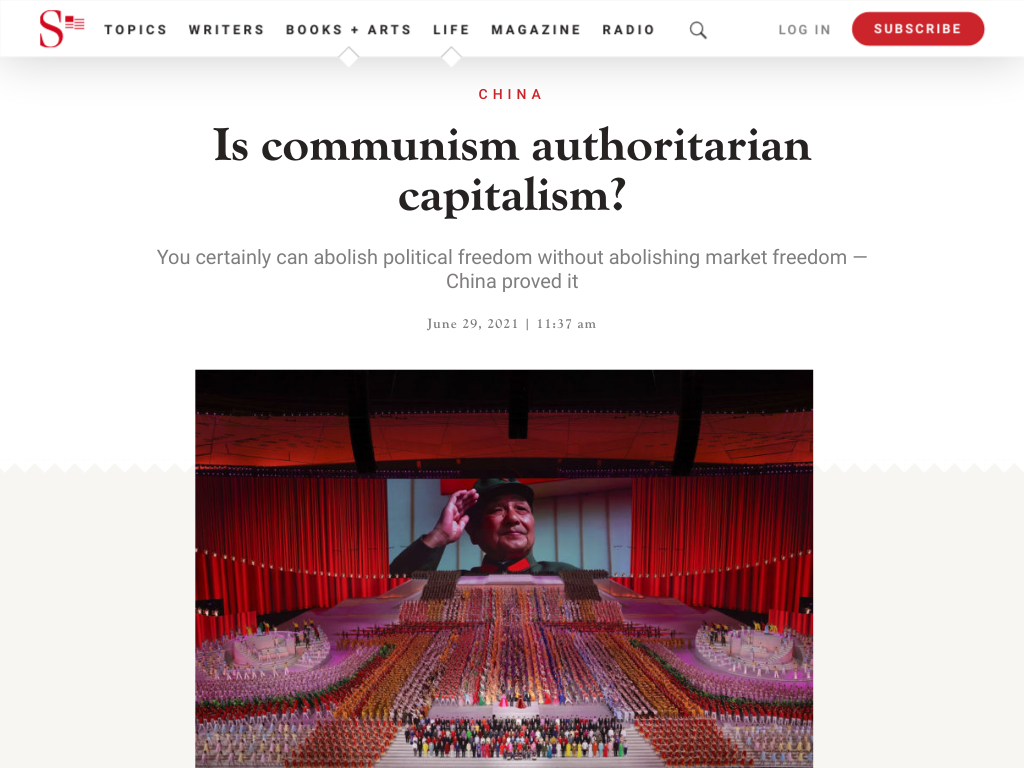It's a pretty short opinion piece but here's the last paragraph that sums up Zizek's thoughts.
The big question that haunts us is of course: can you abolish market freedom without abolishing political freedom? You certainly can abolish political freedom without abolishing market freedom — China proved it. Yet the final result of its rule seems to be to provide a new form of authoritarian capitalism which will replace liberal capitalism. Is China then today the biggest threat to a genuine democratic emancipation? Should China therefore be the enemy of the left?


Ow. That's a lot to take in.
And all of it looks like garbage
:-/